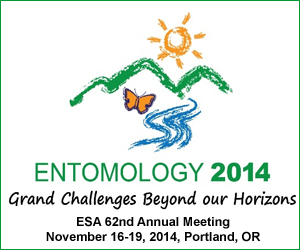Designing a more effective Hydrilla biocontrol agent, Cricotopus lebetis
Designing a more effective Hydrilla biocontrol agent, Cricotopus lebetis
Tuesday, March 4, 2014: 1:40 PM
Greenbrier (Embassy Suites Greenville Golf & Conference Center)
The hydrilla midge, Cricotopus lebetis, is a biological control agent for the invasive weed hydrilla. Hydrilla was introduced to Florida through the aquarium industry in the 1950s and has since thrived. Hydrilla invades natural ecosystems producing surface mats which clog waterways, prevent sunlight penetration and compete with native Florida plants. As a larva, the hydrilla midge mines into the apical meristem of hydrilla preventing further vertical growth and restricting surface mat formation. Using this method of biocontrol along with herbicides, mechanical cultivation and cultural control will help to reduce hydrilla. Objectives were designed to improve rearing and release of C. lebetis for the biocontrol aspect of an integrated pest management program. The first objective assessed egg hatch and subsequent development of eggs held at 5oC for 1, 2, 4, 7, 14, and 21 days. Hatch success decreased significantly after 7 days held at 5oC and final adult emergence was decreased significantly after only 1 day at 5oC. The second objective evaluated intraspecific larval competition for a single hydrilla tip using 1, 2, 3 and 4 larvae per tip. The average rate of emergence increased as competition was reduced, with a single larvae per tip having the highest emergence rate. Overall, these objectives have helped midge rearing and to more accurately predict the effect of midge release numbers for biocontrol of hydrilla. Storage at 5°C should be limited and if necessary, compensated accordingly for reduced adult emergence. Intraspecific larval competition is evident and the greatest emergence rate was with only a single larva per tip of hydrilla which is valuable information when rearing a colony and using the correct ratio of C. lebetis eggs to tips of hydrilla.
See more of: Contributed Papers IV:P-IE: Biocontrol, Resistance Management, Horticultural IPM
See more of: Ten Minute Paper (TMP) Oral
See more of: Ten Minute Paper (TMP) Oral
Previous Presentation
|
Next Presentation >>


